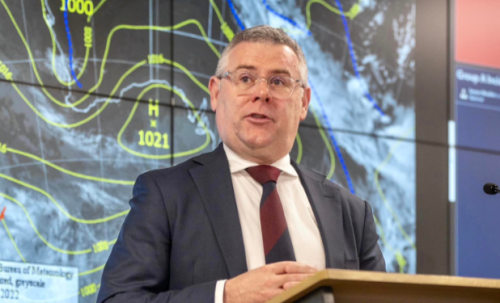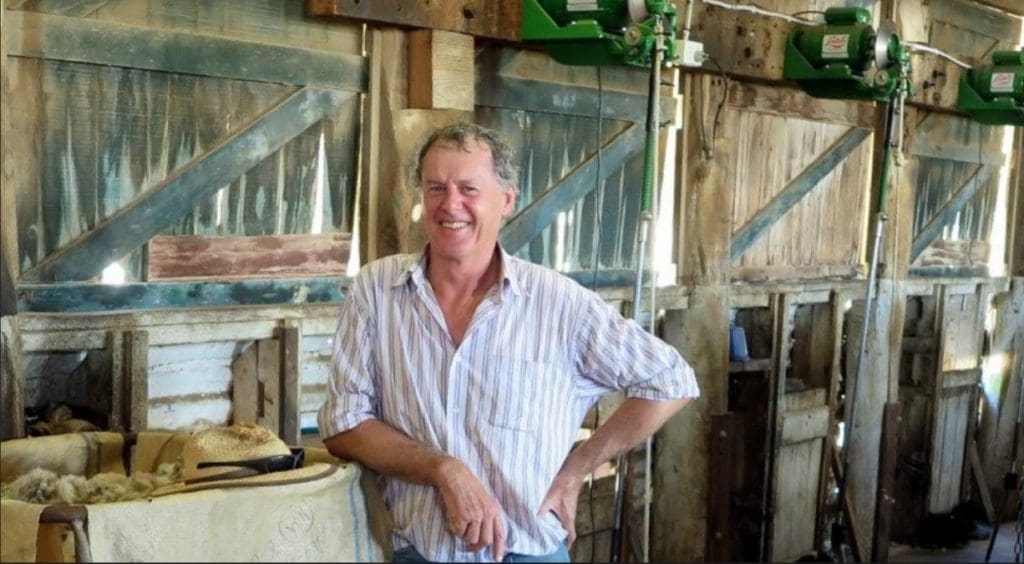
Minister for Agriculture fisheries and Forestry Murray Watt says a national statement on climate change and agriculture is being prepared.
PLANS to develop a national statement on climate change and agriculture have been welcomed by Farmers for Climate Action as the first step to committing to a broader plan and approach on climate change and agricultural policy.
Minister for Agriculture Murray Watt today reacted favourably to a Farmers for Climate Action report calling for Federal Government funding for staff and programs to teach farmers about carbon and climate change.
FCA chief executive officer Dr Fiona Davis said the Farming Forever report’s survey found farmers overwhelmingly want to reduce emissions, but don’t know where to turn and are looking for support and practical help to do so.
“The survey found 93 percent of farmers are willing to shift to low-emissions production, but just 30pc have had a practical demonstration on how to do so.
“We know carbon farming in a high-integrity market can produce huge benefits for farmers, but just 10pc of farmers are growing and selling carbon and 70pc say they don’t understand the carbon market,” she said.
“Some 38pc of farmers said they do not sell carbon because they do not know how.”
The report has made several recommendations including calling for a coherent national approach to climate change and agriculture policy, with programs and more on-ground staff or extension officers to educate farmers on how to reduce emissions and create new income from carbon.
Collaboration and leadership is needed – Watt
In a webinar today after the launch of the report, Mr Watt urged collaboration on agricultural climate change issues, declaring there was an urgent need to support Australian agriculture to become more sustainable.
Mr Watt said during his recent trade tours through Europe and United Kingdom he heard a consistent message from trading partners that “Australia needs to produce food in an even more sustainable way.”
The minister said he wanted to bring a sustainability focus to the whole agricultural supply chain, to act on some of the long-term opportunities that can catapult the industry “even further forward.”
“The key to that is national leadership and to that end federal, state and territory agriculture ministers resolved to make agricultural sustainability one of our shared national priorities at our very first meeting after the federal election.
“That’s a far cry to the situation that came before (under the Coalition government) when ministers were not even permitted to raise climate change discussions about agriculture,” he said.
“And today I’m very pleased to tell you that those ministers, myself included, have agreed to develop a national statement on climate change and agriculture.
“This national statement, a first for Australia, will present a broad and unified vision for the agricultural sector and will demonstrate that all levels of government are committed to supporting this sector to sustainably manage the impacts of climate change,” Mr Watt said.
“This statement provides an opportunity for real and genuine collaboration with industry and state and territory governments on this shared national challenge.
“An opportunity to acknowledge and showcase the work the sector, including your (FCA) members, is already undertaking.”
Acknowledging the results of the Farming for Forever survey, Mr Watt said the bridging role between the desire to act and actual on-farm uptake of climate change measures, “is something that government, along with its trusted partners, can assist with.”
“I’m in discussions with my ministerial colleagues about how we could do that right now, along with a range of other issues of relevance to this topic too.”
National statement is an obvious first step – FCA

Farmers for Climate Action chair Charlie Prell. Image – FCA.
FCA chair Charlie Prell said a national statement on climate change and agriculture was an obvious first step “in what his (Mr Watt’s) intentions are.”
“And if the statement includes a commitment towards a plan, then I’ll be very, very happy.
“If it’s not anything like that then I won’t be happy,” he said.
“The feeling I got from what he was saying is that they were moving down the path that we’ve been pushing for for a long time.”
Mr Prell noted that Mr Watt did not make any commitment to further budgetary expenditure on the issue and FCA is seeking for Federal Budget support for measures recommended in the Farming Forever report.
“It’s the budget that is really important to us.
FCA has made a pre-budget submission for the proposed May federal budget and the body would make another submission later this year, Mr Prell said.
Mr Prell interpreted Mr Watt’s statements as “really strong support” for the measures recommended by FCA and he said it was very encouraging that the Albanese Government seemed willing to take the first step toward a broader plan for climate and agriculture.
Dr Davis said she hopes the Federal Government does cost benefit analyses of the benefits of strong climate policies that help farmers.
“Our suggested policies would of course be a great place to start.
“The resources of Treasury, the Department of Finance, the Department of Agriculture and more have capabilities which can evaluate the economics and inform strong climate policies for the future.”
Dr Davis said federally-funded extension officers could be housed at trusted bodies, such as NRM Regions, to help farmers adapt to a changing climate and find straightforward information on carbon markets, renewable energy and storage, and incentives.
“We see a role for government to provide support for farmers by investing in emissions reduction technologies and initiatives, such as an instant tax asset write-off for renewable energy or on-farm energy storage.
“This could form part of a broader plan for climate and agriculture, which the report recommends.”
A copy of the Farming Forever report is available for download HERE



Lots of assumptions made here. Farmers are already sustainable and have great carbon balances. It’s time we stopped selling our souls and accept that food production is cyclical, particularly livestock. We need to be paid for any reduction and be acknowledged for the huge amount of great work that has been done. We don’t need FCA selling us down the drain.